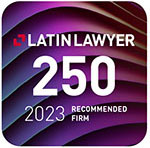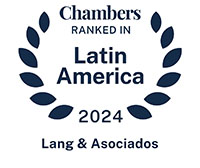The following are a few questions frequently asked by our foreign customers when preparing for a property acquisition deal in Costa Rica.
We hope they are helpful to better understand the property purchase process in Costa Rica.
What will the closing process entail and include?
Costa Rica has a very formal property transfer system. In order for real estate to be transferred, both seller and buyer must sign, personally and in wet ink, a document before a Costa Rican notary public, to be entered and executed in such notary’s special book, authorized by the government, called “protocolo”.
The concept of notary, in Costa Rica, is very different than the one in countries such as the United States and Canada, as only attorneys can be notaries and they also must have a special recognition by the government, as such.
At closing, the buyer must have also paid the purchase price and a declaration as to the origin of funds for such payment and the means in which it was made (i.e. information on check, wire, etc.) must be disclosed by the purchaser, as it needs to be incorporated into the closing document.
Both parties must be physically present at closing and documents cannot be sent to collect signatures remotely.
If the buyer cannot be physically in Costa Rica at closing, there are a few alternatives that could apply and are explained in another answer further below.
How far in advance of closing will closing documents be available for review?
Costa Rican law requires for all transfer documents to be in Spanish. Therefore, the transfer document, which is what is signed at closing, will be prepared by the Notary, in Spanish and read out loud to the parties at closing. The transfer document is also usually very straight forward and directly follows the legal requirements for registration in Costa Rica. As long as all information for the seller is available, the Spanish document can be shared a few days prior to closing.
What documents do I need to bring to the closing?
The original and valid identification document for the buyer who will sign the transfer document (Costa Rican cedula, Costa Rican residency card -dimex- or foreign passport). If the purchase will be made via a Costa Rican company, a shareholders meeting for such company, approving the purchase, must also be prepared and must be received by the closing attorney a few days prior to closing.
If I can’t be there in person, can I use a power of attorney?
Closing by the means of a power of attorney is possible but will need to follow specific formalities of Costa Rican Law. If a Costa Rican corporate entity will be used as the means to purchase the lot, we can implement such power of attorney (ideally, at incorporation time, which will make it more cost effective) by the means of shareholders minutes and/or the incorporation by-laws. If the lot will be purchased in an individual’s personal name, the power of attorney will mandatorily need to be granted before a Costa Rican Consul, using specific language approved by the closing notary; as not all Consuls can do this, since they will need to have a “protocolo” book to do so, coordination of this possibility is essential, and implementation will be more complicated. In all cases, the buyer must be able to identify an individual who is willing to be appointed with the power of attorney and sign in Costa Rica, with the understanding that the signatory will have to declare origin of funds and means of payment, on the transfer document.
If I use a power of attorney, can I still participate in closing via a video call?
This is not a legal requirement but if you want to participate via a video call, this is possible.
What are the closing fees and what do they cover?
Closing costs include notary fees, legal stamps and transfer taxes per the amounts established
by Costa Rican law; these are calculated per the specific valuation of the transaction. Additional costs, such as powers of attorney, shareholders meetings, incorporation, among others, may apply depending on the structure of the transaction, and need to be discussed and calculated accordingly.
Will I receive a physical title or deed to the property?
Ownership of titled land/real estate in Costa Rica is evidenced and recorded in a centralized computer system, called “folio real”, at the Costa Rican Public Register, located in San Jose. Real time access to such system, with the lot’s individual property (“folio real”) number is what formally and officially confirms title and ownership. Therefore, there is no physical title or deed to the property, although the closing notary can share with you a copy of the document that was sent to the Register to implement the transfer, once it is processed, showing the transfer confirmation; this document is not a title or a deed, but merely a proof of the filing and processing of the property transfer at a specific moment in time.
How can I see that the property is actually registered in my name?
You can review this, real time, at the “folio real” system indicated in the previous answer, available online. You can also obtain a certificate confirming this, at any time, from the Costa Rican Public Register.
What if I want to own the lot in the name of a corporation?
This is fully possible. You should use a Costa Rican corporation for these purposes. We can incorporate for you. Incorporation must take place some time before closing since that process must have been fully completed so the lot transfer can take place.
Can a US or other foreign corporate entity own property or does it need to be a Costa Rican corporate entity?
Although, theoretically, a non-Costa Rican corporate entity may own land in the country, this is strongly not recommended, as you will not only need to meet several prior steps and formalities to do that, but also, each time such foreign entity must act in relationship to the property, additional formalities taking time and complexities, will need to be followed, which makes it very impractical.
How do I set up a corporation in Costa Rica?
When incorporating in Costa Rica so you can own real estate, we usually suggest to select an S.R.L. (“sociedad de responsabilidad limitada”) type of entity. It offers you all protections needed from a corporate perspective and can be used for any lawful business, while having a simpler structure, allowing you to have it even if only one individual will be involved. When you work with us on the incorporation purposes, you can be certain it will be set up in a way in which the land purchase transaction is fully supported. The law firm will guide you through the process, which will not require your physical presence in Costa Rica, and in which a manager (or as many managers as you want) holding signature capacities will be appointed and the shares will be transferred per your instructions. Costs vary depending on several factors, such as powers of attorney needed and closing structure, but the total can be quoted by the law firm for the specific case.
What do you recommend for estate planning purposes? Can my trust own the land directly? If not, what is the best structure?
Ideally, you should own the real estate in the name of a Costa Rican company formed for such purposes. Depending on your needs, heirs and inheritance structure, a combination of power of attorney positions and/or share ownership structure and/or ownership of shares via foreign structures may be advisable. It is not possible for a foreign trust to own the land directly, and it is not advisable for a foreign trust to own the shares of a Costa Rican company set up to own the land, but a structure can be established so such foreign trust owns the shares of the Costa Rican company that, in turn, owns the land. In most cases, in addition to the above indicated mechanisms, it is also suggested to sign a Costa Rican will, following local formalities; this will can be established so it only applies to assets located in Costa Rica, if you so prefer. All of these structures must be discussed taking into account your individual needs, so the best alternatives are set up specifically for you.
Can a foreign corporation or a foreign individual own a Costa Rican corporation that owns the land?
Yes, the shares of Costa Rican companies can be owned by foreign corporate entities as well as, directly, by foreign individuals.
Can a foreign individual be a member of a Costa Rican company?
Yes, you do not need to be a Costa Rican citizen or legal resident to be a manager, board member or hold powers of attorney for a Costa Rican company.
Are there any regulatory or filing requirements for Costa Rican companies?
All Costa Rican companies, either if they generate income or not, must register with the Costa Rican Tax Authorities and file a yearly declaration. If they generate income, they will also need to pay income tax and, depending on the income source, value added tax (VAT, or “IVA” in Spanish).
They also need to pay, each year, due in January, a corporate operation tax (“impuesto a las personas jurídicas”), and need to declare their shareholders (entire shareholder ownership chain, up to individual owners or publicly traded companies) before the Costa Rican Central bank.


.jpg)




